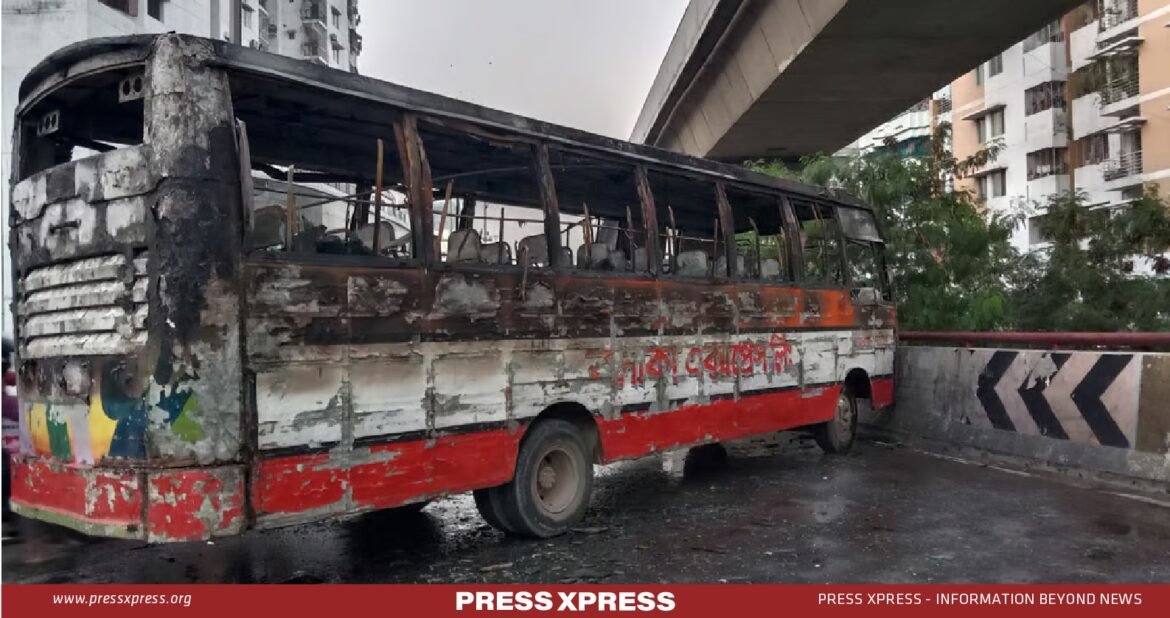Key Highlights:
- Repeated strike-blockades causing severe political instability, adversely affecting the economy
- Business leaders note exacerbated suffering and economic uncertainty, with daily life disrupted
- Streets and routine activities remained unaffected during recent strikes, unlike traditional halts
- Public transport, businesses, and offices operated normally, signaling a shift in public sentiment
Bangladesh, historically known for the potency of its hartals and blockades as tools for political expression, seems to be witnessing a notable shift in their impact. Recent nation-wide strikes orchestrated by the BNP and its allies, once capable of bringing the nation to a standstill, have encountered a surprising lack of resonance. This deviation from the norm signals a transformative phase in the socio-political fabric of the country.
You Can Also Read: BNP’s Violent Branding Hartal-Blockade
Over the past decade, the blockade-strike has become largely ineffective. Despite that, BNP continued this program. People of different classes and professions are wondering why the same program is being continued even knowingly.
However, BNP leaders are reluctant to publicly call their hartal-blockade program ineffective. But some admit on condition of anonymity that such programs have lost importance. In addition, the image of BNP has been tarnished due to sabotage.
Regarding the blockade called by BNP, Awami League General Secretary Obaidul Quader said, “BNP has become tired due to the blockade. The people rejected them. This blunt weapon will no longer be useful. BNP has some hired people. There are some trained illustrators. Only they jump, people have no involvement with them.”
Sluggish Economy Due to Strike-Blockade
Repeated calls for strike-blockades have caused significant political instability, severely harming the country’s economy. Business leaders highlight that the BNP’s blockade program has exacerbated suffering and uncertainty in public life, amplifying pressure on the national economy.
The blockade measures have worsened the already disrupted daily life due to soaring prices of essential goods. Strikes and blockades have led to industrial disruptions, severely impacting production. Transportation of fuel and goods, crucial for daily life, has nearly halted, disrupting import-export operations.
The country’s economy faces a critical threat due to vehicle arson, blockades affecting goods transportation, intimidation, and fear. Estimates from business organizations and research institutes suggest a staggering daily financial loss of about Tk 6,500 crore during these strikes.
As a result of the strike-blockade, the national economy is under immense stress, leading to a negative portrayal of the country abroad.
Subdued Impact on Daily Life
Traditionally, an effective hartal could halt daily life, attracting widespread attention and support. However, during the recent events, the streets remained vibrant with the usual routines of a regular working day. Government and private offices operated without disruption, businesses carried on their usual operations, and public transport services functioned smoothly.
A walk through the city showcased a scene of normalcy—businesses, shopping centers, and service institutions were open, drawing their usual crowds. Roads, typically deserted during a hartal, buzzed with vehicles, resembling routine rush hours rather than a protest-induced hiatus. Most notably, public transport ran unhindered, emphasizing a sense of regularity amidst attempted disruption.
The subdued response to these strikes hints at evolving public sentiment, potentially indicating a reduced reliance on hartals as a form of political expression. This change could stem from a growing awareness of the disruptions caused by these strikes, impacting citizens’ lives and the broader economy.
Moreover, it sparks a debate on the efficacy of traditional protest methods in a changing socio-political landscape. With alternative platforms for voicing dissent and evolving communication channels, conventional methods like hartals might be undergoing a transformation in their relevance and impact.
Shifting Protest Landscapes
As Bangladesh progresses, political entities must reconsider their strategies for engaging and mobilizing people. The dwindling impact of hartals serves as a call for innovative approaches that resonate more profoundly with the populace while minimizing disruptions to daily life.
“We the businessmen don’t want hartals and blockades. We want to do business,” Mahbubul Alam, president of the Federation of Bangladesh Chambers of Commerce and Industry (FBCCI).
The subdued reaction holds diverse implications, shedding light on a changing public outlook that potentially marks a reduced dependence on hartals for political expression. This shift might stem from an increasing realization of the disturbances these strikes cause, impacting both citizens’ livelihoods and the broader economy.
Moreover, it provokes contemplation about the efficacy of age-old protest methods amidst a socio-political landscape in flux. As communication channels evolve and alternative dissent platforms emerge, the relevance of traditional modes such as hartals seems to be undergoing a redefinition.
“When the wheels of buses don’t move, the wheels of our fortune also remain deadlocked, meaning we don’t earn a single penny,”
Bus Driver.
Looking ahead, political bodies might need to rethink their approaches to engage and mobilize the populace. The diminishing influence of hartals signals a need for inventive strategies that resonate more profoundly with the people while causing minimal disruptions to daily routines.
Ultimately, the lackluster response to the recent hartal stands as a testament to the shifting dynamics of public engagement and dissent in Bangladesh. It triggers a vital reassessment of the effectiveness of conventional protest forms, emphasizing the urgency to realign strategies with the evolving expectations and aspirations of the citizens.
Conclusion, Awami League is confident to form government in the next election because of its strong economic performance, the popularity of Sheikh Hasina, the division of the opposition, and the opposition’s failure of organizing a strong protest. On the other hand, the country has overseen a period of rapid economic growth and development in Bangladesh, and the country’s GDP has grown at an average rate of 6% per year over the past decade. Sheikh Hasina is a popular figure in Bangladesh, and she is seen as a strong and experienced leader. The opposition in Bangladesh is divided and lacks a clear leader, backroom deals and foreign support have also failed miserably. These factors give Awami League a significant advantage in the next election.


